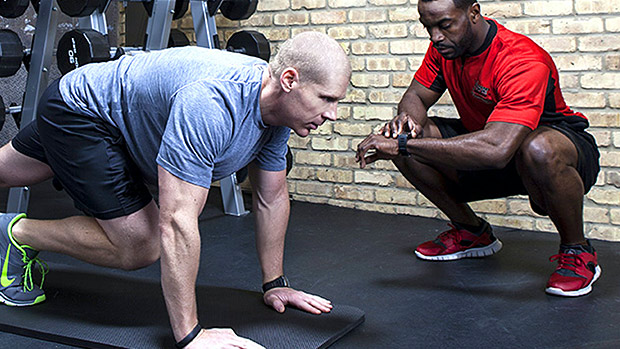There are four big things people don't know about personal trainers:
1. The barrier to entry is woefully low and most people think they suck.
Getting qualified as a personal trainer takes little more than a weekend course and a multiple-choice exam. This is a terrible state of affairs. What's worse is that many potential personal training clients are aware of this fact. Is it any wonder they don't hold trainers in high regard?
If you're a trainer, most will assume you're little more than a rep counter. So you'll need to prove your worth to some very skeptical clients when you start out. Over-delivering is the best strategy a trainer has in this situation.
2. Results matter... a ton.
If you're a trainer and want to charge top dollar, you must deliver results! If you're good at what you do and consistently deliver results, then your clients will sing your praises. And chances are, their social circle will be full of people like them – people who are likely to want to improve how they look and feel, and are in a position to pay your rates.
By delivering results, you'll have a constant stream of new clients on tap. So focus on becoming the best trainer you can be. Deliver an extraordinary level of service to existing clients with the knowledge it's an investment in your future business. When you aren't working with clients or writing their programs, read and research everything you can, which applies to your clientele. The more you learn, the more you can earn!
3. Trainers don't always do what they advise clients to do.
At times in the career of a personal trainer you'll recommend things to clients knowing full well that you don't do them yourself. The importance of sleep and getting enough of it is probably the primary one.
When you start out, you'll most likely work a split shift. Early mornings and evenings full of clients with nothing in-between. As a novice personal trainer, you need clients. You can't be fussy about who, or when you train them. You've got bills to pay, so if you want to survive you'll need to work around the schedule of those wiling to pay you.
Most people that want a personal trainer have busy lives and will either have to train first thing in the morning or after work. These unsociable hours are standard practice for an up and coming trainer. It's a necessary evil if you want to establish yourself in the industry.
When I started out personal training I had to schedule it around my university studies. Combine that with the schedules of my clients and I was waking up at 4:45 AM to go and train my first client. Then I'd see another after that and head to classes for the day.
Most evenings I was back to the gym for a few more clients. I vividly remember waiting on the platform for my train home one evening at 9:45 thinking to myself, "I'll be getting off a train and coming back into work on the opposite platform in under 8 hours." So much for getting the 8-plus hours of sleep I told all my clients they needed!
4. Most personal trainers are insecure, self-centered, and lacking in self-esteem.
This might surprise you given the uber-confident way many of them swagger around the gym, but it's true.
Sure, some trainers were always athletically gifted and naturally gravitated towards a career in fitness, but many others have a more complex back story of low self-confidence or even self-loathing. These stories can be their best sales pitch.
Often a trainer who has struggled with body image or confidence compensates by creating an alter-ego. This usually manifests as an arrogant or egotistical persona. But you know what? People don't like arrogance. They certainly won't pay to spend an hour, three times a week, in the presence of an arrogant person. Even if this arrogance is just a facade to protect the trainer from appearing vulnerable or weak.
If you're an aspiring coach or trainer, recognize that you might've gotten into the industry because of your own personal hang-ups. If you have the self-awareness to acknowledge this fact, then you can turn it to your advantage.
Most prospective clients are nervous or anxious about going to the gym. Gymtimidation is a real thing for many people. They'll be terrified you're going to mock or judge them. Nip that in the bud immediately.
Show them that you've struggled too. Illustrate that you understand what they're going through. If you do that and then highlight how training helped transform your body and mind, they'll be more likely to buy into this belief by hiring you.




